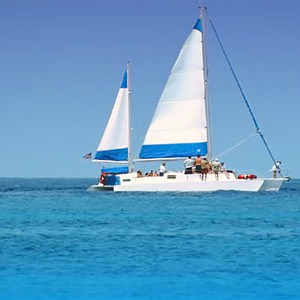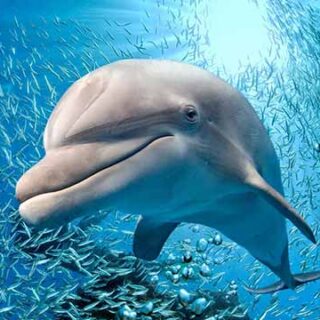Please Register / Login to take part in discussions about the Virgin Islands.
I'm hoping someone can tell me about a kind of rum. I have a mirror that was passed down to me by my Father and it says Captain Norton's Rum. No one can tell me anything about it as I have never heard of it. Any input would be helpful
Admiral of the Fleet Peter John Hill- Norton abolished the rum ration in the UK navy -- It is likely named after him.
Admiral of the Fleet Lord Hill-Norton, the former chief of defence staff, who has died aged 89, was an outspoken traditionalist on the importance of sea power and a strong defence for Britain, who also believed in modernisation and found the courage to abolish the Royal Navy's traditional daily tot of rum.
Peter John Hill-Norton was born in Surrey, the son of a captain in the Royal Flying Corps. His mother was descended from generations of naval officers going back to 1635, so his dispatch to the Royal Naval College at Dartmouth, at the then traditional age of not quite 14, was hardly surprising.
He first went to sea on the cruiser HMS London, and went on to serve as a midshipman on the battleships Malaya and Rodney before promotion to sub-lieutenant in 1935. By the outbreak of war in 1939, Hill-Norton was a lieutenant with full qualifications in gunnery.
He put his new skills to use for most of the war in convoy protection, serving on escorts in the north Atlantic, in the North-Western Approaches and on the gruelling route to Russia's Arctic ports, mostly in the cruiser Cumberland. After a spell on the staff, Lieutenant-Commander Hill-Norton finished the war in the far east as gunnery officer on the battleship Howe.
Promoted commander in 1947, he worked at the Admiralty again before moving to the aircraft-carrier Eagle as executive officer. Hill-Norton was made captain in 1952 and spent the ensuing four years as naval attaché in Buenos Aires, covering Uruguay and Paraguay as well as Argentina.
It was thus after no fewer than 24 years' service that he got his first command, the destroyer HMS Decoy, in which he helped to cover the Suez landing in 1956. After another short stint in Whitehall he was given the plum command of the carrier Ark Royal in 1959.
In 1962 he got his rear admiral's flag as assistant chief of naval staff. Two years later he was appointed second-in-command of the Far East Fleet, where he played a leading role in the prolonged confrontation with Indonesia: he was promoted to vice-admiral in 1965. The Far East Fleet was then Britain's principal overseas naval commitment and a major drain on the defence budget as Labour took office in 1964.
The Polaris ballistic nuclear submarine programme survived the change of government and Labour's second victory in 1966. The Far East Fleet still stood at a swollen 70 ships, despite defence secretary Denis Healey's thirst for cuts, when Hill-Norton was recalled to London as deputy chief of defence staff (personnel and logistics) at the newly unified Ministry of Defence.
In January 1967, he was appointed second sea lord, in charge of specifically naval personnel. It was then that the controversy over the rum issue came to a head. The handling of increasingly complex and delicate equip ment by ratings after a mighty slug of spirits was causing increasing concern.
The tot was also enough to put anyone over the limit of the new-fangled breathalyser test being applied ashore; the navy had more drink problems than the other services; and cases of serious indiscipline aboard ship were notably more likely to arise after the daily rum issue than before.
It was Hill-Norton who, in 1967, proposed its abolition at a stroke - to be replaced by a facilities allowance and a bar aboard ship run by senior ratings. By the time the measure was put into effect in 1970, amid much anxiety about the effect on morale, Hill-Norton had risen to first sea lord and chief of naval staff. He did so on merit, but a little ahead of time. The man originally chosen to head the navy at that point was Admiral Sir Michael Le Fanu, but he was forced to retire because his health was failing.
Since Le Fanu was universally recognised as outstanding and a natural candidate for the top job in the navy, most likely to be followed by elevation to chief of defence staff, Hill-Norton, as second choice, faced the greatest challenge of his career in replacing a hugely respected figure at minimum notice. He managed it with aplomb; and the lower deck showed as much composure in ceasing for ever to splice the mainbrace.
The condition of the navy as a whole was uncertain, as Labour announced its intention of withdrawing from east of Suez to save money. The construction programme for nuclear-powered hunter-killer submarines was badly behind and the days of the carrier were apparently numbered (although three "through-deck cruisers" - mini-carriers by another name - were being planned).
The general election, in June 1970, brought the Conservatives back with a promised reprieve for Britain's presence east of Suez; it was just one month later that Hill-Norton got his unexpectedly early promotion from commander-in-chief, far east, to first sea lord, a post he held for only 10 months.
He became chief of defence staff, Britain's most senior serving officer, with the rank of admiral of the fleet, in April 1971. His final active post was as chairman of Nato's military committee from 1974 to 1977.
Enobled in 1979, Baron Hill-Norton became an active member of the House of Lords, making many lively interventions in naval and defence debates and giving media interviews or writing letters and articles in the press. Many of his contributions were controversial, such as when he attacked poor warship design, excessive reliance on nuclear weapons, the shrinking of regular and reserve forces and even the alleged suppression of UFO sightings by the MoD.
One of his most spectacular public démarches came when he assumed the role of President Chernenko, then Soviet leader, complete with fur hat, for a speech in March 1983 at Westminster Hall calling for a new home defence force of 750,000. There were jokey headlines about a reborn Dad's Army, but the admiral was serious enough to put some of his own money into the short-lived campaign, seeing Soviet special forces as a major threat to Britain's security. He struck a chord in 1996 when he called the widely disliked Tory defence secretary Michael Portillo "a little creep" for planning to privatise London's historic Admiralty Arch.
Lord Hill-Norton, always fond of shooting and gardening, married Eileen Linstow in 1936. She survives him, as do their daughter and son, Vice-Admiral Sir Nicholas Hill-Norton.
· Peter John Hill-Norton, Baron Hill-Norton of South Nutfield, born February 8 1915; died May 16 2004



